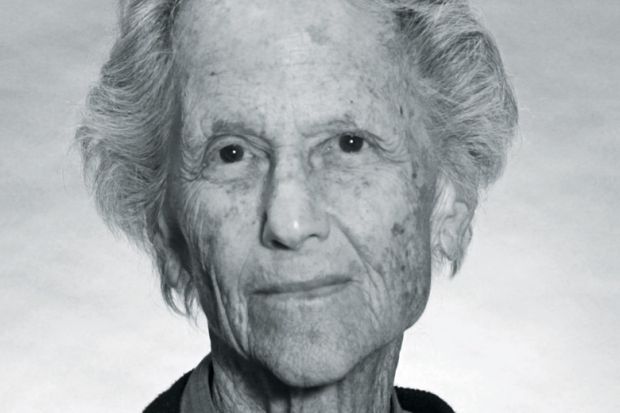Elizabeth Eisenstein was born on 11 October 1923 into the distinguished Lewisohn dynasty of industrialists and brought up on Fifth Avenue in New York.
She studied for her first degree at Vassar College (1944) before going on to Radcliffe College – the women-only institution then separate from but linked to Harvard University – for a master’s and a PhD.
She took a job as an adjunct professor at the American University in Washington (1959-74) and then moved to the University of Michigan as the Alice Freeman Palmer professor of history until she retired and became emerita in 1988.
Although she began her career as an expert on the French Revolution and early 19th-century France, Professor Eisenstein soon switched her focus to a very different field. A key stimulus was Marshall McLuhan’s celebrated 1962 polemic The Gutenberg Galaxy: The Making of Typographic Man, which cheerfully celebrated the passing of the age of the book and the birth of a new “global village” ushered in by electronic media.
Yet McLuhan’s “oracular pronouncements”, Professor Eisenstein recalled later, provided little insight into what the original “shift from script to print” had really meant. She therefore decided to investigate for herself, “anticipating a strenuous effort to master a large and mushrooming literature”.
To her great surprise, however, she “could not find a single book or even a sizeable article which attempted to survey the consequences of the 15th-century communications shift”. It was precisely this gap that she bridged in her two-volume work The Printing Press as an Agent of Change: Communications and Cultural Transformations in Early Modern Europe (1979), which examined both the technical aspects of the “transformation” and the resulting impact on “cultural and intellectual movements”.
Acclaimed as a masterpiece for its bold theories about printing’s role in the development of the Renaissance, the Reformation and the Scientific Revolution, Professor Eisenstein’s monograph was reissued in abridged form as The Printing Revolution in Early Modern Europe (1983).
Still often drawn on in discussions of today’s transition from print to digital culture, its continuing influence is well suggested by the publication of Agent of Change: Print Culture Studies after Elizabeth L. Eisenstein (edited by Sabrina Baron, Eric Lindquist and Eleanor Shevlin, 2007).
Professor Eisenstein continued her research in the field that she had made her own and published Divine Art, Infernal Machine: The Reception of Printing in the West as recently as 2011.
She died on 31 January and is survived by her husband, Julian Calvert Eisenstein, a son, a daughter, three grandchildren and two great-grandchildren.
POSTSCRIPT:
Register to continue
Why register?
- Registration is free and only takes a moment
- Once registered, you can read 3 articles a month
- Sign up for our newsletter
Subscribe
Or subscribe for unlimited access to:
- Unlimited access to news, views, insights & reviews
- Digital editions
- Digital access to THE’s university and college rankings analysis
Already registered or a current subscriber?




